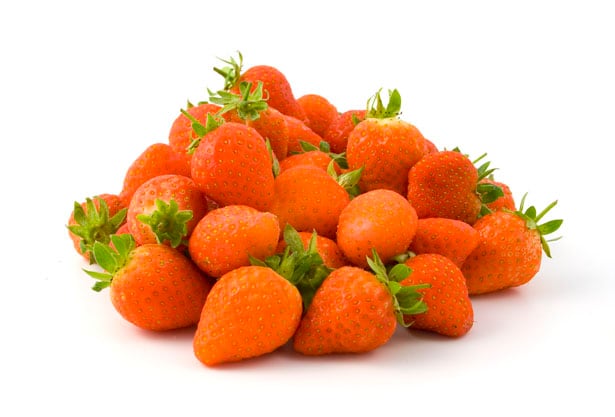Scientists from the USDA-ARS, Human Nutrition Research Center on Aging at Tufts University report that supplementing the diet of lab rats with strawberries or blueberries also increased hippocampal neurogenesis and the expression of insulin-like growth factor 1 (ILGF 1), which has been associated with learning and memory.
“These results also indicate that the diverse polyphenolics in the different berry fruits might be acting differentially to produce their positive effects,” they wrote in the British Journal of Nutrition. “For example, on the motor tests, the blueberry diet group was better on the rod walk, which measures psychomotor coordination and the integrity of the vestibular system, whereas the strawberry group was better on the plank walk, which assesses more general balance and coordination. Both supplemented groups showed positive effects on the rotarod test, which is a measure of fine coordination, balance and resistance to fatigue.”
The study, led by Dr Barbara Shukitt-Hale, adds to an ever growing body of science supporting the potential cognitive health benefits of berries.
Study details
The new study used 42 aged Fischer 344 lab rats. The animals were randomly divided into three groups; one group consumed the standard chow diet, while the other two groups had their standard diet supplemented with 2% strawberry powder (California Strawberry Commission) or 2% blueberry powder (US Highbush Blueberry Council) for six weeks.
Results showed that rats consuming the berry diets had enhanced motor performance and improved cognition, specifically working memory.
The berry supplemented rats also showed increased production of neurons in the hippocampus and expression of ILGF 1.

The berry supplements did not produce the exact same results, however, which the researchers linked to the polyphenol content of the different berries. Analysis of the berries showed that the blueberry diet had higher levels of cyanidin, delphinidin, malvidin and peonidin, compared with strawberries, which had higher levels of pelargonidin and petunidin, compared to blueberries.
“We have shown previously that anthocyanins contained in blueberry, specifically the four seen in the rat diet in this study, cross the blood–brain barrier in glycosylated form and localize in the brain, and the total number of anthocyanin compounds in the cortex and hippocampus correlates with Morris water maze performance,” said the researchers.
A multiplicity of effects
“Taken together, these pre-clinical findings suggest that dietary supplementation with berry fruits has the potential for a multiplicity of effects, in addition to their antioxidant and anti-inflammatory properties, including the activation of a variety of signaling pathways that result in neuroprotection, neurogenesis and, ultimately, spared cognitive and motor behavior,” they wrote. “Individual polyphenols in the berry fruits might exert their effects through different and/or independent mechanisms.
“Future studies should assess which specific polyphenolic compounds and/or metabolites enter the serum, and from there into which areas of the brain in animals, to ascertain the extent to which regional localization and bioavailability of the blueberry and strawberry polyphenols contribute to their mechanism(s) of action.”
The study was funded by the USDA and by agreements between the USDA and the Wild Blueberry Association of North America, the US Highbush Blueberry Council, and the California Strawberry Commission.
Source: British Journal of Nutrition
Published online ahead of print, FirstView, doi: 10.1017/S0007114515003451
“The beneficial effects of berries on cognition, motor behaviour and neuronal function in ageing”
Authors: B. Shukitt-Hale, et al.

